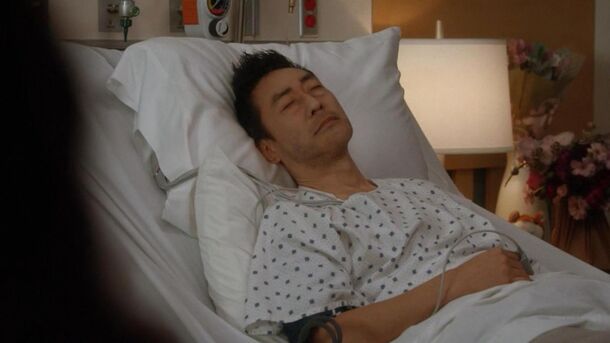We Know 9-1-1 Characters Aren't Dying, So Why Keep Pretending?

Sometimes the over-dramatization diminishes the genuine drama that can occur.
Summary
- 9-1-1 carries too much bait about the possible deaths of the main characters.
- This devalues any concern for the characters, knowing that they will survive anyway.
- A better solution might be to explore the consequences of such incidents.
Sometimes, no matter the genre, the dramatic element can only work to your advantage. Unlike major motion pictures, linear television often draws its audience in with corny plots that keep viewers coming back to a particular show week after week. However, of the countless projects that have appeared on television over the decades, only those that have managed to strike the right balance between campiness and seriousness, action and drama, are likely to be preserved in the pop cultural memory.
In this regard, one of the best modern shows on television is the procedural drama 9-1-1, which for seven seasons has delighted its fans with a fascinating story about the personal and professional lives of Los Angeles' first responders. The most recent season, however, has put the staff of Station 118 through far more trials and tribulations than ever before. What's more, several characters were on the verge of death, but these storylines were left almost entirely undeveloped, as they were used just for the sake of drama.
Of course, no one expects superb writing on the level of HBO 's prestigious projects like Succession, but when the balance shifts to pure drama, only to disappear in the next episode, even the most loyal fans' patience is exhausted.
Too Many Mortal Dangers Leading Nowhere
Season 7 kicked off in much the same way as the previous seasons. However, things quickly took a darker turn. Particularly starting with Episode 6, which was dedicated to Maddie and Chimney's wedding. Everything that followed the events of the bachelor party suddenly took a turn for the worse when Chimney was diagnosed with viral encephalitis.

Then things only got uglier. Bobby's arc with his efforts to process the tragic Minnesota fire. Eddie, who broke his son's trust by never letting go of feelings he had for his deceased wife, triggering the kid by meeting Shannon's doppelganger. Hen and Karen, who have lost the right to legally adopt Mara. All in all, Season 7 took an unexpectedly serious turn that broke with the tone of previous storylines.
However, fans would be happy if the writers didn't build suspense and intrigue through drama, only to have that drama disappear in this or the next episode. For example, Chimney escaped the terrible fate of encephalitis, and Bobby successfully survived the heart attack and even seems to have rehabilitated himself.
Dramatic Events Should Have Consequences
Of course, few viewers would want to see their favorite characters die in an overall lighthearted series full of comedic scenes and wacky plot twists. It 's unlikely that Ryan Murphy, Brad Falchuk and Tim Minear would want that either. After all, few can compete with angry fans!
However, it's unclear why they would even create such a bait for the viewer's emotions, putting the characters in an endless series of near-death experiences. After all, it cheapens the script and the characters themselves — it makes no sense for the viewer to care about the fate of this or that Station 118 employee, knowing that none of them will die unless the actors themselves suddenly decide to leave the project.
In this situation, it would have been best to explore the consequences of those near-death experiences. Maybe some of the characters would have been even more traumatized and had to recover for many months, maybe some of them would have coped the other way around, through closure and coarsening. Or maybe we could have had incredibly therapeutic episodes where the crew helped the characters deal with psychological barriers.
Well, we'll see how the writers handle the next season, which has been announced for April 2024. 9-1-1 Season 8 will air this fall on ABC and Hulu.